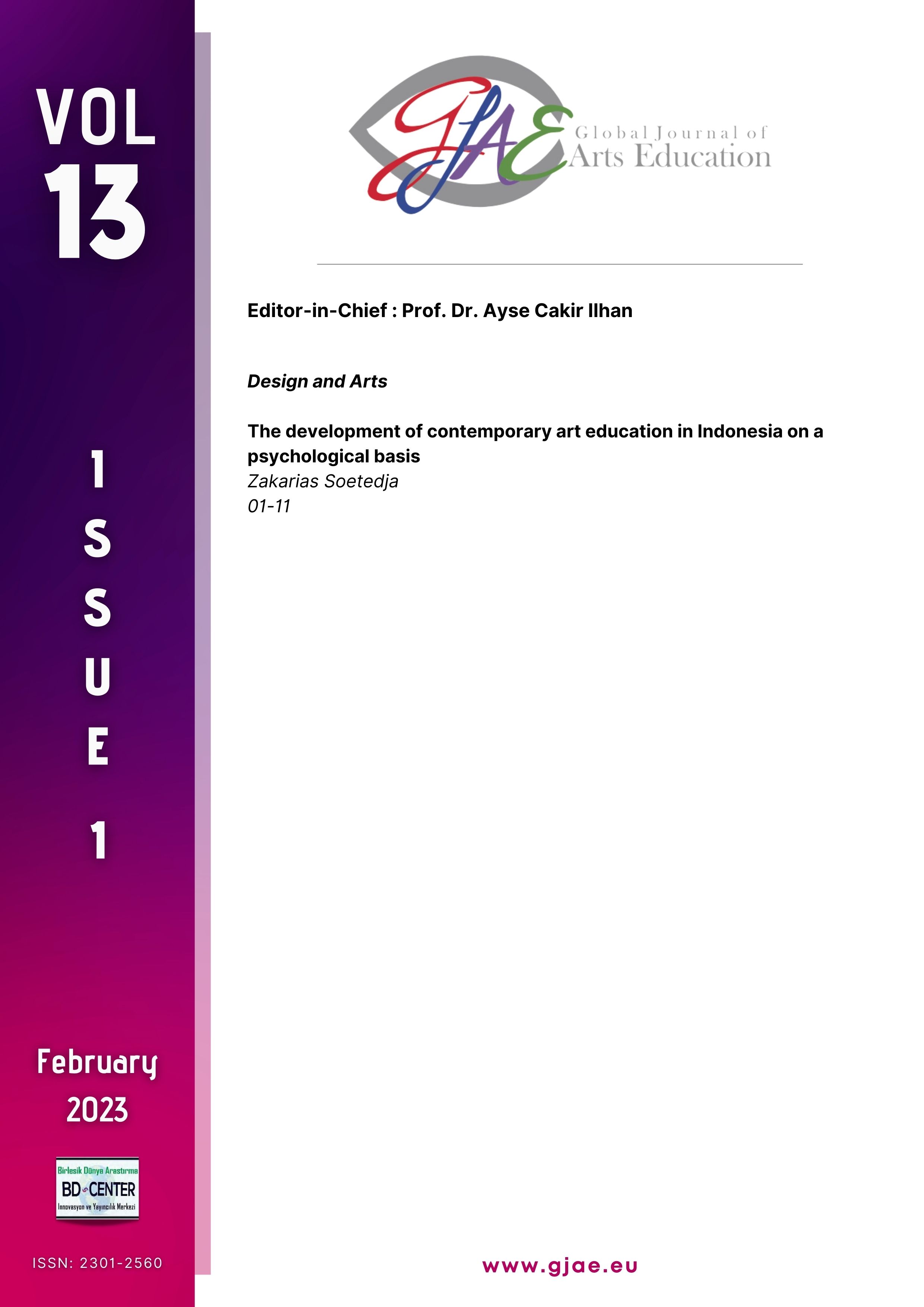The development of contemporary art education in Indonesia on a psychological basis
Main Article Content
Abstract
This study aims to develop a conceptual framework regarding the psychological and pedagogical basis of learning in art education in Indonesia. This research was developed using a qualitative inquiry method and offers a conceptual basis for the relationship between psychological aspects and learning, and important developments in the relationship between the two, both theoretically and practically in the world's leading arts education institutions. Using this basis, this study offers the idea that in many contexts consideration of aspects of psychology will find momentum, along with its contribution to arts education. In practical terms, psychology makes a significant contribution to the choice of learning experiences and the way teaching is carried out in the classroom. In curriculum planning and preparation, an understanding of psychology is very important for curriculum developers in planning appropriate learning experiences and conditions for learning.
Keywords: Curriculum; contemporary; development; education; psychological basis.
Downloads
Article Details
Authors who publish with this journal agree to the following terms:
- Authors retain copyright and grant the journal right of first publication with the work simultaneously licensed under a Creative Commons Attribution License that allows others to share the work with an acknowledgement of the work's authorship and initial publication in this journal.
- Authors are able to enter into separate, additional contractual arrangements for the non-exclusive distribution of the journal's published version of the work (e.g., post it to an institutional repository or publish it in a book), with an acknowledgement of its initial publication in this journal.
- Authors are permitted and encouraged to post their work online (e.g., in institutional repositories or on their website) prior to and during the submission process, as it can lead to productive exchanges, as well as earlier and greater citation of published work (See The Effect of Open Access).

